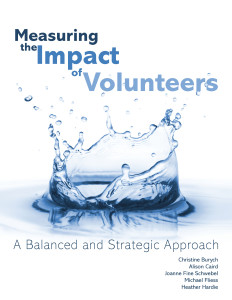 Every program, agency or individual will face criticism online. Every organization and person will have to address misinformation online as well. We have always lived in a world of criticism, hate speech and misinformation – with the Internet, that speech can be instantly widespread.
Every program, agency or individual will face criticism online. Every organization and person will have to address misinformation online as well. We have always lived in a world of criticism, hate speech and misinformation – with the Internet, that speech can be instantly widespread.
No matter how large or small your nonprofit, NGO or government program is, your communications staff needs to be ready to address criticism and misinformation – and worse – online. Here are five resources, some by me, that can help:
- How to Handle Online Criticism / Conflict. Online criticism of a nonprofit organization, even by its own supporters, is inevitable. It may be about an organization’s new logo or new mission statement, the lack of parking, or that the volunteer orientation being too long. It may be substantial questions regarding an organization’s business practices and perceived lack of transparency. How a nonprofit organization handles online criticism speaks volumes about that organization, for weeks, months, and maybe even years to come. There’s no way to avoid it, but there are ways to address criticism that can help an organization to be perceived as even more trustworthy and worth supporting.
- Recommendations for UN & UNDP in Ukraine to use Twitter, Facebook, Blogs and Other Social Media to Promote Reconciliation, Social Inclusion, & Peace-Building in Ukraine (PDF). This is a draft document I submitted to UNDP Ukraine just before I left Kyiv in October 2014, having completed my term there as a “Surge” Communications Advisor. This draft document offers considerations and recommendations for social media messaging that promotes reconciliation, social inclusion, and peace-building in Ukraine. It provides ideas for messaging related to promoting tolerance, respect and reconciliation in the country, and messaging to counter bigotry, prejudice, inequality, misperceptions and misconceptions about a particular group of people or different people among Ukrainians as a whole.
- UNESCO’s Countering Online Hate Speech, a free publication from UNESCO (pdf), spends most of its time talking about what is and isn’t hate speech, but does have some good information about countering hate speech and misinformation, without censorship, in the chapter “Analysing Social Responses”, specifically the sections on Monitoring and discussing hate speech, Mobilizing civil society, Countering online hate speech through media and information literacy, Citizenship education and digital citizenship, Education as a tool against hate speech, Development of critical skills to counteract hate speech online, Educational goals of media and information literacy to respond to hate speech, and Assessing media and information literacy and education initiatives (pages 33-41, and 46-52).
- I have also been gathering and sharing examples for a few years now of how folklore, rumors and urban myths interfere with development and aid/relief efforts, as well as recommendations on preventing or responding to such.
- List of my blogs related to conflict, free speech, reconciliation, etc. – my blogs that talk about conflict, extremism, extremists, hate speech, words, offensive, offended, hating, haters, reconciliation, toleration, free speech, apologies and inclusion.
- Feuds in the nonprofit/NGO/charity world
On a related note, You have an obligation to be truthful online.

